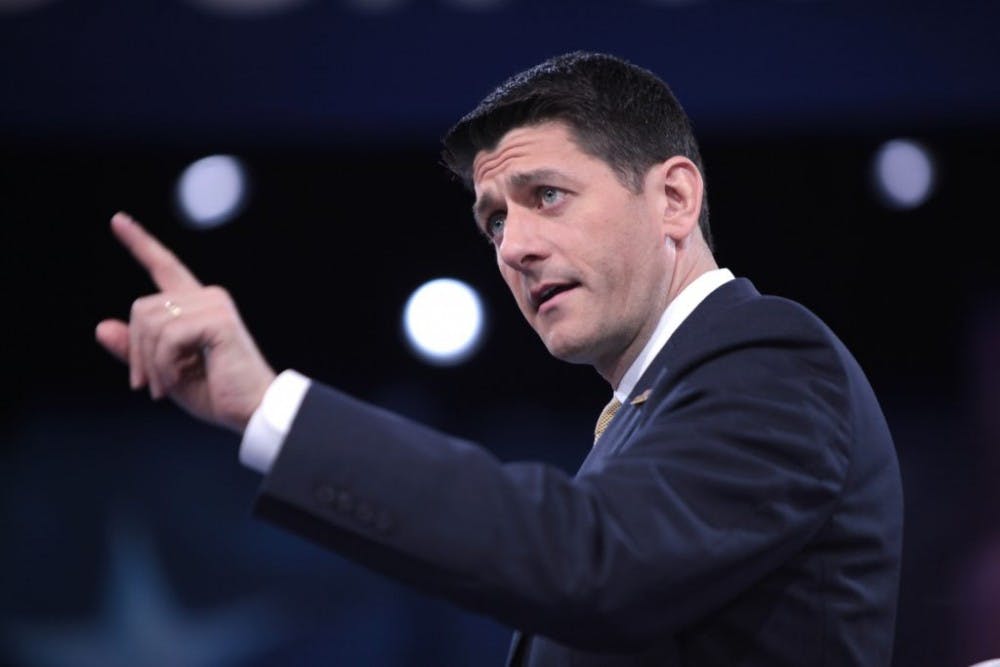The health care bill debacle reinforced, in no uncertain terms, the Republican attitude toward the Affordable Care Act (ACA) during Obama’s presidential terms. Namely, they opposed it for the primary reason that it came from the opposition party and specifically from the Obama administration. (Yes, they even originally scheduled the repeal/replace vote date to be on the anniversary of the ACA.)
If these Republican lawmakers truly were ideologically and pragmatically opposed to the ACA, then they should have cogitated on the problem of health care and perhaps begin formulating new solutions during the seven years that they had. Granted, specific legislators change, new politicians are elected and party priorities shift — this is all true.
But, as a body, the Republican Party has adamantly and unrelentingly voiced its opposition to the ACA for the last seven years. It was one of Trump’s campaign promises, of course, to repeal and replace it. One would think that the Republican Party would’ve drawn up at least a few original ideas.
The result — the American Health Care Act — resembled a did-it-the-night-before kind of job. The Republicans knew that, without 60 Senators on their side, they would never have a chance of fully repealing and replacing the ACA, even if they did have a real plan. Instead they used the budget reconciliation process (passing budget resolutions in both House and Senate) to allow changes to the ACA.
This method would prevent a filibuster from Democrats, since budget-related legislation has certain restrictions on voting and debating that other legislation does not. But this inherently affects the kind of changes that can permissibly be made; The changes must somehow affect the budget and how the federal government spends and collects money.
Why did Republicans use this method? Because it was the quickest way and, presumably, the most practical. Perhaps under a different president they might have felt less of a rush, but the political dimension of the 2016 campaign cannot be discounted.
Trump’s promise to “immediately” reform health care undoubtedly put the party that now held majorities in both houses under great pressure. And, after seven years of denouncing ACA as the “devil’s work,” a new Republican health plan would be a major political achievement.
Then the bill was so disastrously bad that Paul Ryan rushed to White House on March 24 to inform Trump that it wouldn’t have enough votes to pass. Some moderate Republicans had concerns over its changes to Medicaid and Medicare, which, combined with the other parts of the bill such as the “continuous coverage incentive,” would increase the number of uninsured people to 24 million by 2026, according to the Congressional Budget Office’s report.
Other hard-line conservatives opposed the bill on the grounds that it was “Obamacare Lite” or “Obamacare 2.0.” It didn’t go far enough in removing government restrictions on the health care industry, apparently.
One of the biggest disgraces in the whole health care debacle, besides the bill itself, was Trump’s ultimatum on Thursday, March 23 toward the Republican Congressmen. His attitude of Fall in line, or I’m moving on’ reflects an appalling lack of care or concern for the American people.
Government is not a business, and bills are not simply “deals.” The president cannot “move on” from health care because he does not get his way. The millions of people whose fate concerning their health care lies primarily in the legislation passed by Congress cannot “move on.”
Trump’s ultimatum was fundamentally a face-saving political move. If the vote had succeeded, he would have claimed a part in the victory of repeal and replace that had been central to his campaign. If the vote had failed, as it undoubtedly would have had it actually gone through, he would have already sufficiently distanced himself from Republican legislators.
The same holds true for the Republican lawmakers. If the bill had passed, they would have claimed a key political victory but would have had to face the consequences from their adversely affected constituents. If the bill had failed, they would have been saved the blame of being the instigators of millions of cost hikes, but they could point to Trump’s ultimatum as a time constriction.
While people’s very lives are at stake, the legislative and executive branches play political games. It may not be a new phenomenon, but it is still a monumental disgrace.






